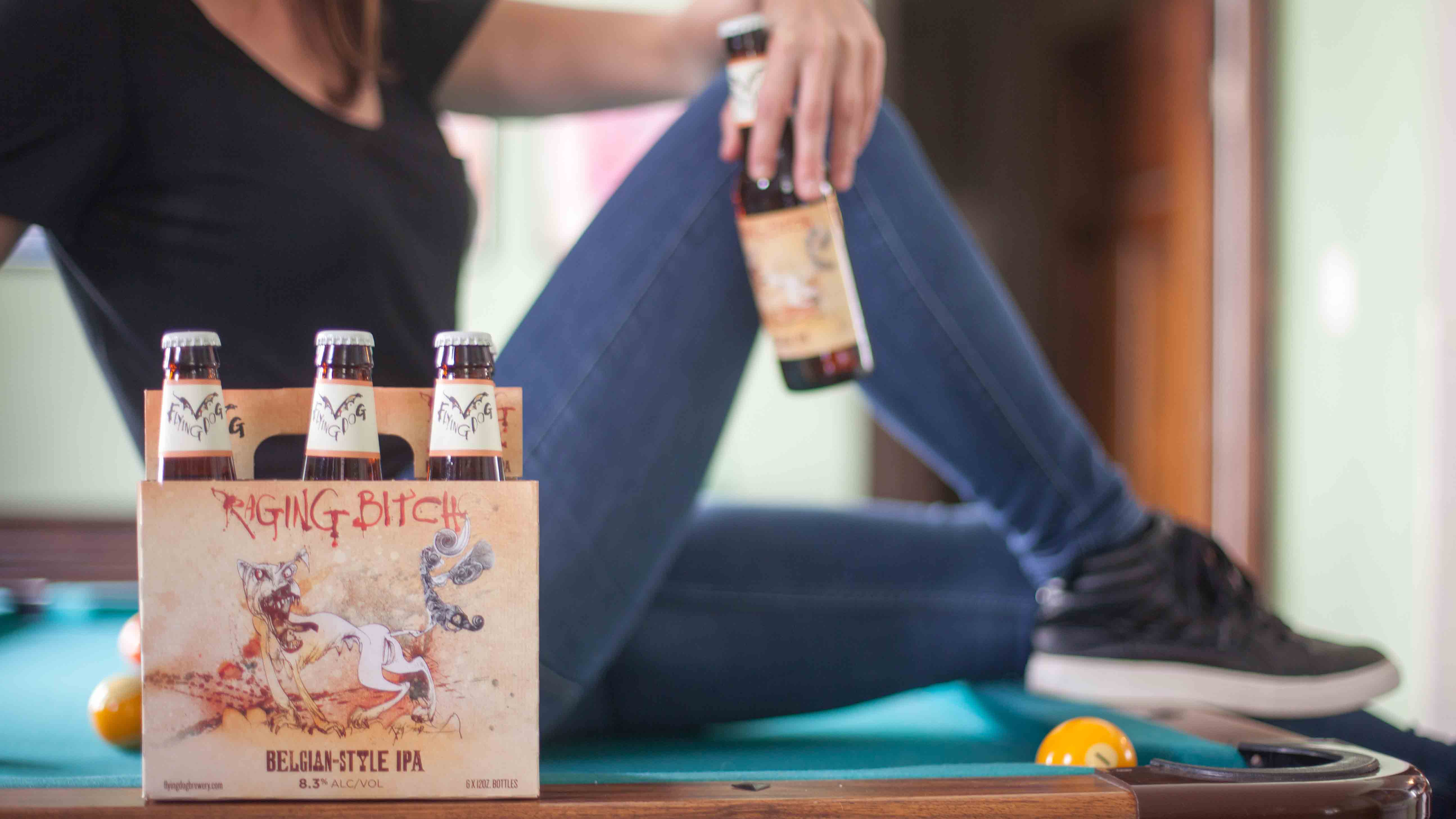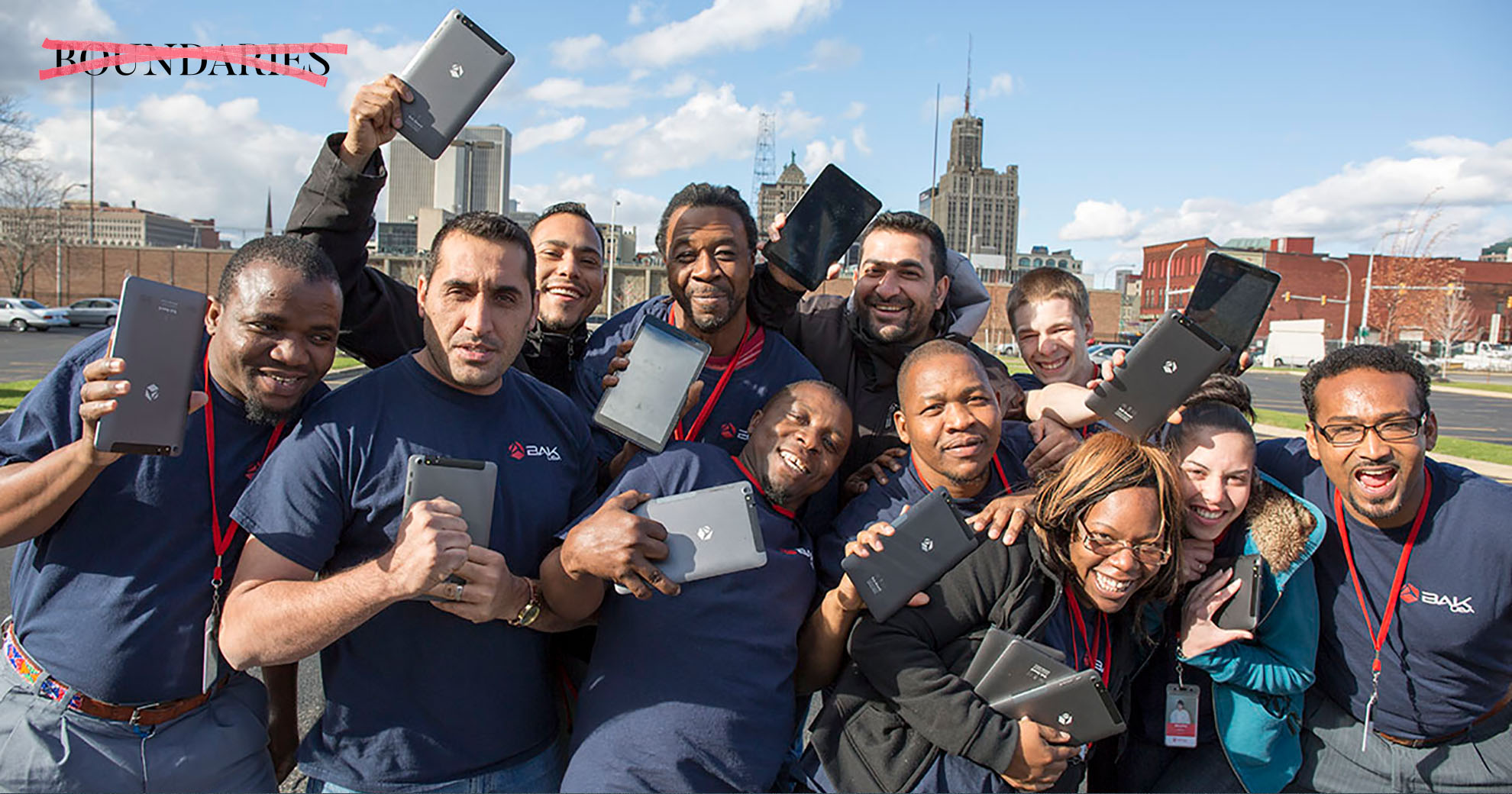By Tessa Lowe and Syrie Roman of GirlsDrink.Beer
Java the Nut, Pearl Necklace, Panty Peeler, Hoppy Ending, Sex Panther, Old Leghumper (so many legs… so little time!), Polygamy Porter (why have just one!), Old Chub.
Yes, these are all legitimate beer names. The beer industry is no stranger to incorporating sexual innuendos and puns into their naming conventions. This year the Brewers Association amended their advertising code, which may have a big impact on how breweries and marketers decide on naming their creations.
The Brewers Association is a nonprofit organization of brewers, for brewers and by brewers. More than 4,000 U.S. brewery members (in 2016 the total number of U.S. Craft Breweries was 5,234) and 46,000 members of the American Homebrewers Association are joined by members of the allied trade, beer wholesalers, retailers, individuals, other associate members and the Brewers Association staff to make up the Brewers Association.
As you can see from the figures above, most breweries are a part of the association. Its members include the Boston Beer Co., Sierra Nevada, New Belgium, Stone Brewing, Dogfish Head Craft Brewing, Bear Republic, and Avery Brewing to name a few. Even on a local level, most breweries are a member as well. Their purpose is to promote and protect American Craft Brewers, their beers, and the community of brewing enthusiasts. That’s an important job and we commend their role in promoting craft.
So, what’s the issue at hand here? Freedom of expression. Censorship is a slippery slope because there’s no line. Because of that, how do you know when you or someone has crossed it? Beer consumers in the U.S. are adults, 21 years and older, who should be able to voice their opinion with their purchases, censor with their dollars. If you choose not to support a brewery because of your values or feelings, that’s perfectly fine. Don’t buy their beer. The real issue here is how subjective the topic is. Personally, it’s going to take A LOT to offend us. We have a crude sense of humor and choose entertainment over offense. Labels like Alimony Ale, Get Down American Brown, Citra Ass Down, Space Nation Middle Finger, Lucky SOB, or Golden Shower IPA make us laugh.
Do you know why Lagunitas Brewing Company’s Rich Copper Ale is called Censored? Well, the federal labeling-approval agency, the BATF, censored the original name, Kronik. While marijuana references are becoming more socially acceptable with the rapid legalization movement, this one was ahead of the time. We think the company made the best of this situation. Rather than fighting it, they said whatever, and slapped a Censored label over it. That might actually be a better name than the original, and the story behind it is phenomenal.
However, as inclusion and equality fights are raging on a number of fronts, you have to ask certain questions: what goes into a beer name and advertising? Is it self-expression? Is it a reflection of the ideals and morals of the brewery/brewers? Or, is it just plain fun?
And, even further: who has the right to dictate what is deemed “sexually explicit, lewd, or demeaning”? Shouldn’t the consumer be trusted with making their own purchasing decisions?
As stated in the Brewers Association Marketing and Advertising Code introduction: “Beer marketing should be representative of the values, ideals and integrity of a diverse culture and free of any derogatory or discriminatory messages or imagery.”

Their recent amendments to the advertising and marketing code notably states that:
“Beer advertising and marketing materials SHOULD NOT: contain sexually explicit, lewd, or demeaning brand names, language, text, graphics, photos, video, or other images that reasonable adult consumers would find inappropriate for consumer products offered to the public, contain derogatory or demeaning text or images.
These are part of the guidelines Brewers and Breweries need to adhere to in order to comply with the Brewers Association Marketing and Advertising Code. The code was adopted in February of 2008 and amended in April of 2017.
If the breweries do not adhere to this code and a beer with a questionable label wins any blind tastings or competitions an independent review panel would look at any medal winners. Should the panel deem that the brewery is breaking the code, the brewery would still win the award but would not be allowed to use the association in any way to market that beer.
As a result of the new (stricter) guidelines breweries like Flying Dog, the 32nd largest brewery in the country, have pulled their membership and terminated their relationship with the Brewers Association. Were they concerned that they weren’t going to win an award at GABF (Great American Beer Festival) this year because of it? Probably not. They did it out of principle.
Flying Dog’s CEO Jim Caruso said: “Freedom of expression and free enterprise are not only what created our vibrant and robust craft beer industry, they are also core principles for Flying Dog. It seems the BA does not share those values, and wants to eliminate from the market any beer with labels they find disagreeable.”
He continues to state: “If you’ve suppressed my ability to communicate my marketing message to my potential consumers, you are anti-free enterprise. It’s appalling to think that the brewers who sit on the board of directors and the BA management are interfering in the industry, trying suppress free enterprise and suppress craft brewers from communicating their marketing message to their consumers.”
Caruso concludes by saying: BA leaders “have completely lost sight of the purpose for the Association” and should be focusing their attention on issues such as nutritional labeling, the fight for market share with wine and spirits, the challenges coming from big brewers, softening of craft beer sales and winning new consumers.”
“The brewers on the BA board of directors and BA management are there to serve the industry.” “They’re not there to think for consumers and make sure they only have BA-approved choices. They’re not there to interfere with their competitors and tell them how to run their businesses. There are big issues in the industry, and that’s what they should be focused on.”
Names or labels are really just a tactic to give that beer to get more likes or viral posts on social media. Ultimately, as beer drinkers and consumers we should be focusing on the flavors, characteristics, and quality of the product.
As craft breweries proliferate, let’s remember that one thing is being funny and naming your beer Yellow Snow IPA, Old Leg Humper, or Gary Brewsy, and another completely different thing is demeaning gender, race, or religion, and promoting rape culture (Google Mr. IPA if you want to go down that rabbit hole).
We fully support freedom of expression and the fact that each brewery can name their beers as they please. But, you won’t see us purchasing a Horny Heffer (a Hefeweizen from a brewery in Illinois we won’t name to give undue promotion to). Cheers to those like Stoudts who nailed it with a cleverer play on words like Smooth Hoperator.
Follow GirlsDrink.Beer on social media in the pursuit of happiness, adventure, and good beer!




